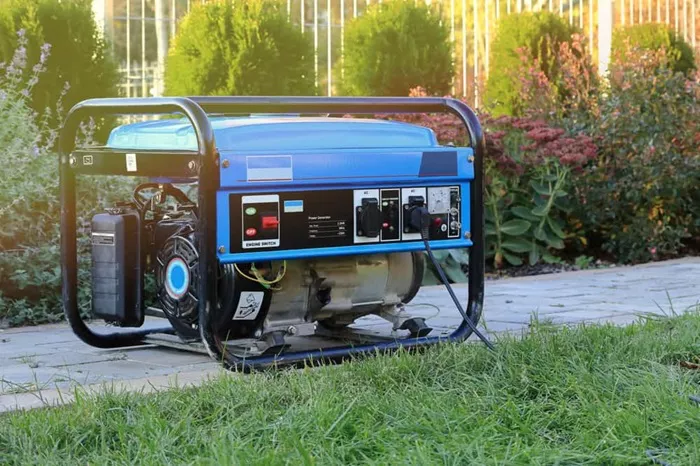Home generators are essential backup power sources during outages, ensuring that households maintain electricity for lights, appliances, and heating. But what fuels these generators? Understanding the different power sources helps homeowners choose the best option for reliability, cost, and environmental impact.
In this article, we’ll explore the most common fuels used in home generators, how they work, and their pros and cons.
How Do Home Generators Work?
Before diving into power sources, it’s important to understand how generators function. A home generator converts mechanical energy into electrical energy through an alternator. The engine, powered by a fuel source, spins the alternator, producing electricity that powers your home.
Generators can be:
- Portable – Smaller units that power select appliances.
- Standby (Whole-House) – Permanently installed and automatically turn on during outages.
Now, let’s examine the different fuel types that keep generators running.
Gasoline-Powered Generators
How They Work:
Gasoline generators are among the most common portable options. They use internal combustion engines that burn gasoline to generate electricity.
Pros:
- Widely Available – Gasoline is easy to find at fuel stations.
- Affordable Upfront Cost – These generators are usually cheaper than diesel or propane models.
- Portable – Ideal for camping or temporary power needs.
Cons:
- Short Shelf Life – Gasoline degrades in about 3-6 months, requiring fuel stabilizers.
- Highly Flammable – Storing large amounts can be hazardous.
- Higher Maintenance – Gasoline engines require frequent oil changes and tune-ups.
Best For:
- Emergency backup for short outages.
- Outdoor activities and job sites.
Diesel-Powered Generators
How They Work:
Diesel generators compress air to ignite fuel, making them more efficient than gasoline models. They are commonly used in standby and industrial applications.
Pros:
- Fuel Efficiency – Diesel engines consume less fuel per kilowatt-hour.
- Longer Lifespan – Diesel engines are built to last under heavy use.
- Better for Continuous Use – Ideal for prolonged power outages.
Cons:
- Higher Initial Cost – More expensive than gasoline generators.
- Noisy Operation – Diesel engines tend to be louder.
- Cold Weather Issues – Diesel fuel can gel in freezing temperatures.
Best For:
- Homes in rural areas with frequent outages.
- Businesses needing reliable long-term backup power.
Propane-Powered Generators
How They Work:
Propane generators run on liquefied petroleum gas (LPG) stored in tanks. They can be connected to portable tanks or a home’s propane supply.
Pros:
- Long Shelf Life – Propane doesn’t degrade over time.
- Clean Burning – Produces fewer emissions than gasoline or diesel.
- Quieter Operation – Runs smoother than liquid-fueled generators.
Cons:
- Lower Energy Density – Propane provides less power per gallon than diesel or gasoline.
- Storage Requirements – Large tanks take up space and may need professional installation.
Best For:
- Eco-conscious homeowners.
- Areas with reliable propane supply.
Natural Gas-Powered Generators
How They Work:
Natural gas generators connect directly to a home’s gas line, providing a continuous fuel supply. They are typically standby generators.
Pros:
- Unlimited Fuel Supply – No need for refueling as long as gas lines are intact.
- Low Emissions – Burns cleaner than gasoline or diesel.
- Automatic Operation – Starts immediately during an outage.
Cons:
- Dependent on Gas Lines – If the gas supply is disrupted, the generator won’t work.
- Higher Installation Cost – Requires professional setup.
Best For:
- Urban and suburban homes with natural gas infrastructure.
- Homeowners seeking a hands-off backup solution.
Solar-Powered Generators
How They Work:
Solar generators use photovoltaic panels to charge batteries, which then power an inverter to produce electricity.
Pros:
- Renewable Energy Source – No fuel costs after installation.
- Silent Operation – No engine noise.
- Low Maintenance – Few moving parts mean less wear and tear.
Cons:
- Weather Dependent – Requires sunlight to recharge.
- Limited Power Output – May not support high-energy appliances.
Best For:
- Off-grid living.
- Supplemental power for small appliances.
Battery-Powered Generators
How They Work:
These generators store electricity in lithium-ion or lead-acid batteries, which can be charged via AC power, solar panels, or car chargers.
Pros:
- Instant Power – No startup time.
- Portable & Lightweight – Easy to move around.
- Zero Emissions – Environmentally friendly.
Cons:
- Limited Runtime – Needs frequent recharging.
- High Cost for Large Capacity – Expensive for whole-house backup.
Best For:
- Short-term outages.
- Powering small electronics and medical devices.
Choosing the Right Fuel for Your Generator
When selecting a generator, consider:
- Fuel Availability – Can you easily access gasoline, diesel, or propane?
- Runtime Needs – How long do outages typically last in your area?
- Budget – Include installation, fuel, and maintenance costs.
- Environmental Impact – Propane, natural gas, and solar are cleaner options.
Conclusion
Home generators can run on various fuels, each with unique advantages. Gasoline and diesel are powerful but require regular maintenance. Propane and natural gas offer cleaner, longer-lasting solutions. Solar and battery generators provide eco-friendly alternatives but may lack the power for full-home backup.

